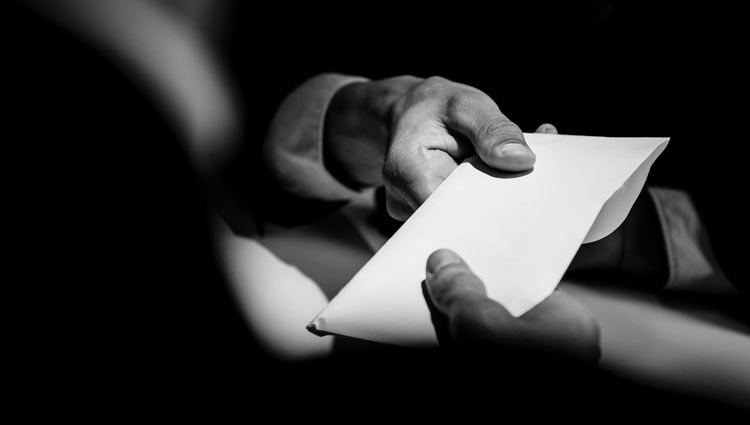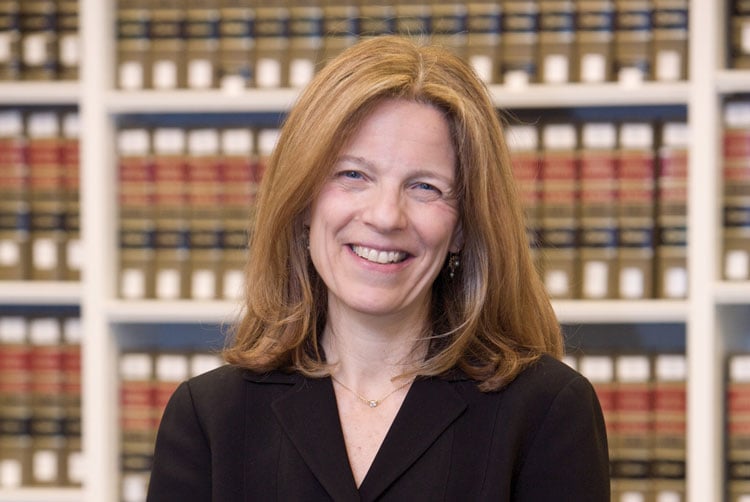Model rule revision allows attorneys to help pro bono clients in need

Shutterstock
Daniel Greenberg became interested in amending ABA Model Rule 1.8(e) when he realized he’d been in violation of it his entire career.
“It literally did not occur to me that it could be unethical to, when you were in court waiting for a case to be heard, take an indigent client to lunch with her kids or give her carfare to get home or, in some cases, help her with food and some necessities,” says Greenberg, the special counsel for pro bono initiatives at Schulte Roth & Zabel in New York City.
“And when I found out that one wasn’t supposed to do it, it was almost like I laughed out loud. It felt so bizarre to me, that of all things, we couldn’t do this as an ethical matter.”
Greenberg, who was at the time on the ABA Standing Committee on Legal Aid and Indigent Defense, worked with other members for several years to research and recommend changes to the rule, which bars financial support for litigation clients. After SCLAID and the Standing Committee on Ethics and Professional Responsibility approved their proposal, it was submitted to the House of Delegates at the ABA Annual Meeting in August.
The association’s official policymaking body adopted Resolution 107, which amends Model Rule 1.8(e) by adding a narrow exception that will improve access to justice for the most vulnerable populations. Under this exception, lawyers who represent indigent clients pro bono through a nonprofit legal services organization or law school clinical program are permitted to provide them with modest gifts for food, rent, transportation, medicine and other basic living expenses.
The amendment also states lawyers may not promise gifts to clients in exchange for their retention or a continued relationship after retention; seek or accept reimbursement for gifts from clients or anyone affiliated with them; or advertise the availability of gifts to potential clients.
Clients who are hurting
Philip Schrag, in his role as co-director of Georgetown Law’s Center for Applied Legal Studies, an asylum law clinic, has encountered a series of low-income clients who were in desperate situations.
One was living in his wrecked car, and another started sleeping on the street while she was working with the center. A third could no longer afford antipsychotic medication and became suicidal. In all these cases, Schrag says, his students were able to provide some financial assistance because the District of Columbia had adopted a more lenient version of Model Rule 1.8(e).
That changed in 2007, when the District of Columbia began requiring its attorneys to obey the ethics rule of any tribunal in which they had a litigation matter. Since the immigration courts were in Maryland and Virginia, Schrag says his law students had to follow their rules.
“Those two states had adopted the ABA’s version of 1.8(e),” he says. “It was very prohibitive, and we were not able to help clients [going forward].”
Schrag, who also teaches professional responsibility, wrote about the problem in an article published in the Georgetown Journal of Legal Ethics in 2015. He shared copies of it with members of the ABA and began working with Greenberg and Don Saunders, the senior vice president for policy at the National Legal Aid & Defender Association, on proposed changes to the rule.
According to the report that accompanied Resolution 107, Model Rule 1.8(e) was adopted in 1983. It allowed lawyers to provide clients with payments or loans for litigation expenses and court costs but prohibited any other financial assistance for two reasons.
Comment 10 to the rule explains that if lawyers provided loans to clients for living expenses, it would both “encourage clients to pursue lawsuits that might not otherwise be brought” and “give lawyers too great a financial stake in the litigation.”
Schrag contends the ABA has “drafted around that problem” by allowing lawyers to give gifts but not loans to indigent clients for basic necessities.
“That overcame the argument that it would allow lawyers to take advantage of clients and keep them in their pockets for a long time because they would become creditors of the clients,” Schrag says.

Photo of Barbara Gillers by ©Hollenshead: Courtesy of NYU Photo Bureau.
When Barbara Gillers, the immediate-past chair of the Standing Committee on Ethics and Professional Responsibility, introduced Resolution 107 to the House of Delegates, she pointed out that any ethical concerns with the exception, which is commonly known as the “humanitarian exception,” were satisfied.
“The assistance cannot be loaned, so there is no conflict and no effect on the lawyer’s judgment, and the lawyer cannot offer the assistance until after retention and cannot use the prospect of assistance to induce retention,” Gillers, an adjunct professor at New York University School of Law, explained to delegates at the 2020 ABA Annual Meeting. “Having addressed the ethical concerns of the rule,” Gillers added that the proposal to amend Model Rule 1.8(e) was particularly meaningful “to the lawyers and individuals fighting for social justice at this time of pandemic and economic fallout.”
Making a big difference with small assistance
Past ABA President Robert Grey Jr., also spoke in support of Resolution 107, telling the House of Delegates that it addresses the “recognizable difficulties and impediments brought on by poverty in representing indigent defendants.”
“This does not create an obligation or an expectation, and in most instances, these are very short matters in terms of their duration, and so the likelihood of any problems that might come up as a result of this financial assistance are minuscule and nonexistent in all respects,” said Grey, senior counsel in the Richmond, Virginia, office of Hunton Andrews Kurth.
In the United States, all but 11 jurisdictions have adopted a rule that is identical or similar to Model Rule 1.8(e), according to the report accompanying Resolution 107.
The ABA will notify each state supreme court chief justice about its amendment to the rule. Schrag says state courts and bar associations will review the change, but he doesn’t expect them to delay adopting it in their own rules.
“I think the main reason most states stuck with the ABA rule was that it was the ABA rule, and they didn’t see a need to change it,” he says. “The fact that the ABA has now changed its rule will give a significant impetus to reform in the states.”
Greenberg agrees, crediting the ABA for taking the lead at an opportune moment in the country’s history. “Lawyers who care deeply about their clients are now free to manifest that concern in a more tangible way, where small amounts of aid can be life-changing for people,” he says.



